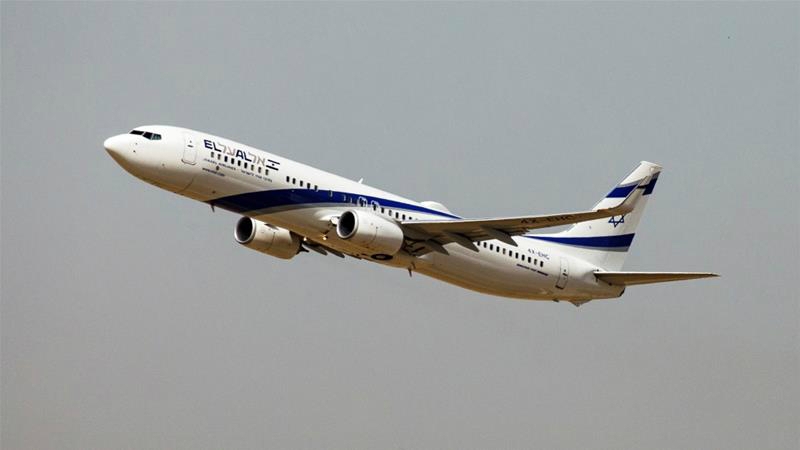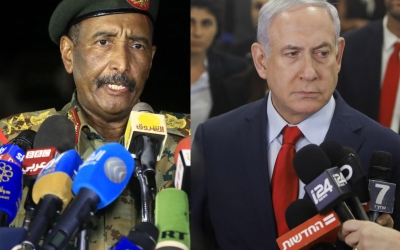Israeli aircraft flies over Sudan for first time, says Netanyahu

Israeli Prime Minister Benjamin Netanyahu said that an Israeli civilian aircraft had flown through Sudanese airspace for the first time, in what is being seen as another example of warming ties with formerly hostile Arab states.
"The first Israeli airplane passed yesterday over the skies of Sudan. This is quite a change," Netanyahu told American Jewish leaders in Jerusalem on Sunday evening. "Now we're discussing rapid normalisation."
Israeli newspaper Haaretz quoted an Israeli government official, speaking on condition of anonymity, as saying that the plane was "a private Israeli executive jet".
Khartoum said on 5 February it had given Israeli planes initial approval to fly over its territory, two days after Sudan's military leader Abdul Fattah al-Burhan met Netanyahu in Uganda.
Sudan has been part of a decades-old Arab boycott of Israel over its treatment of Palestinians and its illegal occupation of Palestinian and Arab lands.
In the wake of the 1967 Middle East war, in which Israel occupied the Palestinian territories and seized the Golan Heights from Syria, Arab leaders gathered in Khartoum to announce what became known as the "three nos": no peace, no recognition and no negotiations with Israel.
Israel previously considered Sudan a security threat because it suspected Sudan was a conduit for Iran to smuggle munitions over land to the besieged Gaza Strip. In 2009, regional sources said, Israeli aircraft bombed an arms convoy in Sudan.
'Vast changes are coming'
Netanyahu met Burhan two weeks ago for what the Israeli premier's office described as talks aimed at normalising ties.
A Sudanese government spokesman said later that Burhan "did not give a promise of normalising or having diplomatic relations".
Normalising relations with Sudan would allow Netanyahu to burnish his diplomatic credentials just ahead of Israel's 2 March election.
Netanyahu said on Sunday that visible signs of a thaw in relations with Sudan and other Muslim-majority countries were only the tip of the diplomatic iceberg, AFP reported.
"How much is above the surface in an iceberg? It's about 10 percent, he said. "What you're seeing is about 10 percent. Vast changes are coming."
Khartoum's interim leadership seeks to be removed from a US blacklist and crippling international sanctions. As the administration of US President Donald Trump has pushed its controversial plan for Israel and Palestine in the past month, critics have suggested that the thawing relations between Sudan and Israel could be tied to the removal of US sanctions.
Repatriation of undocumented Sudanese migrants
Gulf Arab countries have made a number of recent moves hinting at warmer ties with Israel, prompted largely by a shared enmity towards Iran.
Netanyahu visited Oman in 2018 and frequently says the boycott of his country is ending, despite the absence of a peace deal with the Palestinian leadership.
Egypt and Jordan are so far the only Arab states to have full diplomatic relations with Israel.
The new air corridor will also take planes over Egypt, which made peace with Israel in 1979, and Chad, which in 2018 restored long-severed relations with Israel, Reuters reported.
Netanyahu said the new route cuts some three hours off flights from Israel to South America.
Israeli commentators have speculated that the new contacts with Khartoum could allow for the repatriation of undocumented Sudanese migrants in Israel, and that Israel could in turn lobby the United States to improve Sudan's standing in Washington.
Middle East Eye propose une couverture et une analyse indépendantes et incomparables du Moyen-Orient, de l’Afrique du Nord et d’autres régions du monde. Pour en savoir plus sur la reprise de ce contenu et les frais qui s’appliquent, veuillez remplir ce formulaire [en anglais]. Pour en savoir plus sur MEE, cliquez ici [en anglais].





